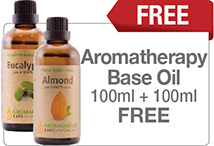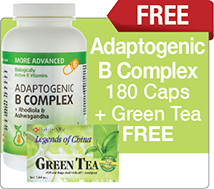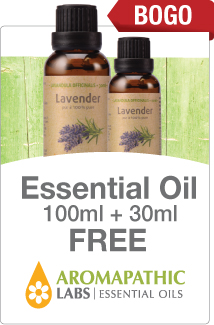Toothpaste
Updated Nov. 25th, 2022
Most of us have been trained from as early as we can remember how important brushing regularly can be to our oral health. It removes food debris and helps to kill excess bacteria in the mouth. This also helps to maintain the overall health of our entire body. Unfortunately, many commercial toothpastes are full of chemicals that can actually harm us.
Tooth Brushing
Brushing after each meal can help to protect your health. Be sure to wait some time after sugary or acidic meals to allow the saliva to clear away excess sugar and neutralize the pH as much as possible before brushing, to be sure that the enamel can remineralize and not be lost with brushing. Be sure to use a soft toothbrush and gently brush each tooth in a sweeping motion starting at the gums and brushing away (downwards on the upper teeth and upwards on the lower teeth).
Cavities and Bacteria
Bacteria that colonize the human body enjoy warm, and moist environments. This makes your mouth an ideal place for them to be! Given the right environment, these bacteria can form a biofilm that coats the teeth and erodes the enamel. When given sugar, bacteria quickly use it for growth and create acidic waste products. This waste creates an acidic environment around your tooth that results in enamel loss. As the bacteria die off and reproduce, they create tartar along the teeth, which can become mineralized by saliva and create plaque. Tartar and plaque prevent the saliva from performing its protective function. Removing food debris, cleaning the teeth of tartar before it is mineralized, and changing the diet can quickly change the ability of bacteria to grow in your mouth. Once plaque forms, your dentist may have to remove it with sharp scraping instruments.
Fresh Breath
Believe it or not bad breath is a sign from your body that something isn’t quite right. It can be a sign of poor dental hygiene, but can also be caused by toxicity, infections, constipation, organ diseases and stress. Maintaining good oral health is the first step towards fresh breath, because it removes old food particles and reduces the presence of stinky bacteria. Gargling with salt water and rinsing the mouth with diluted essential oils can also have a significant impact on bad breath. For more information, please see our Halitosis article. If none of these interventions help, be sure to visit your healthcare practitioner to see what else might be going on, and to rule out more serious health conditions.
Sensitive Teeth
Many toothpaste products advertise their ability to reduce sensitivity. Interestingly, sensitive teeth are actually caused by a thinning of the enamel that exposes the tubules in our inner dentin. This allows temperature and chemical changes from the mouth cavity to be transmitted directly to the nerves in the pulp of our tooth. For more information on how this occurs, please see our Oral Health article. Sensitivity toothpastes contain an anesthetic that enters the dentin tubules and blocks the nerve; this actually only masks the true problem. The only way to permanently cure sensitivity is to repair the enamel coating, and reseal the dentin once more.
Natural Tooth Whitening
People pay hundreds of dollars to whiten teeth with harsh chemicals like bleach and peroxide. This can actually damage the gums and create future erosion and damaged teeth. Believe it or not, your teeth are actually reflecting your inner health. Yellowing of the teeth is a sign that your inner health is not ideal. The enamel layer on our teeth is clear like glass, so the colour of our teeth comes from the dentin layer. Maintaining healthy dentin comes from a balanced diet, and proper oral care.
CHEMICALS FOUND IN COMMERCIAL TOOTHPASTES
Commercial toothpastes often contain chemicals that should not be put into our bodies. The gums are quite thin, and it doesn’t take a large break in integrity or cut to allow for passage of bacteria and chemicals directly into the bloodstream. Even without cuts, the skin in the mouth allows for very quick absorption, particularly under the tongue. Some medications, like nitroglycerin will be given sublingually (under the tongue) for this exact reason. Because of this, it is essential to be cautious about what chemicals you use in your mouth. Many toothpaste containers will actually state that their contents should not be swallowed and should be spit out after use. If you wouldn’t eat it, you may want to reconsider brushing your teeth with it. In fact, if small children accidentally eat fluoridated toothpaste, it can be fatally toxic; toothpaste ingestion in children is an emergency and you should contact your local poison control centre immediately.
Fluoride
This chemical is used to help strengthen tooth enamel by creating stronger mineral bonds. Topical use of fluoride has been clinically shown to reduce the risk of cavities. Unfortunately, high levels of fluoride intake can cause fluoridosis, which damages teeth and bones. Excess fluoride use has also been associated with bone cancer and reduced IQ in children. Further research is required to be sure of causality in these associations.
Sodium Lauryl Sulphate
One of the main foaming agents in toothpaste is sodium lauryl sulphate (SLS). It creates the familiar lather of toothpaste, but isn’t actually useful for removing plaque. Actually, this chemical is a known carcinogen that easily penetrates the skin and gums. In fact, it actually increases skin permeability (around 100x) to other chemicals in the toothpaste. It has also been found to last in the body for up to 5 days after use. Sodium lauryl sulphate has been gaining visibility in popular culture for its negative effects, and some manufacturers are removing it from their products. You can check the ingredient list on your toothpaste to see if it still contains SLS.
Triclosan
This chemical is commonly added to personal hygiene products for its antibacterial and antifungal properties. In 2012 Health Canada declared that:
“triclosan is not harmful to human health, but in significant amounts can cause harm to the environment.” (click highlighted text to go to page)
Because of this, many manufacturers are removing this chemical from their formulas. Be sure to check your toothpaste to see if yours is protecting the environment. See our Triclosan article for more information.
Other chemicals in toothpaste
The list of chemicals in commercial toothpastes is long, but here are some of the more common ones that may be detrimental. Glycerin coats the teeth and prevents the saliva from properly reaching the teeth and protecting them from bacteria. Propylene glycol is an ingredient commonly known as antifreeze. Ingestion should be avoided. Some toothpastes will also contain formaldehyde, the same chemical used to preserve cadavers for your high school biology labs.
Scared Yet? Don’t Be
Obviously reviewing these contents can be frightening to say the least. Unfortunately, in today’s chemical-ridden culture, it is important to stay informed and read the labels on your personal hygiene products. There are a number of natural toothpaste products that can provide all of the benefit to oral hygiene without the risks to your health.
NATURAL OPTIONS
Essential Oils
One of the most common ingredients for natural toothpastes and tooth serums is essential oils. These oils can be directly antimicrobial and also have stimulating and healing effects on the gums and the enamel. Some popular ones are Cinnamon,Clove, Oregano Oil, Peppermint, Tea Tree, and Thyme Oils. For more information, please see our Essential Oils article.
Herbs and Extracts
Often herbs and extracts will also be used, such as Neem for its antibacterial effects and Mastic Gum for its ability to remove plaque and stimulate local white blood cells. Natural tooth care will often also contain Salt in some form to help balance the pH, and as an additional antimicrobial influence.
Xylitol
Many natural tooth care products (pastes and gums) will include Xylitol in their ingredient list. Interestingly, xylitol is a natural sugar alcohol found in the fibre of a variety of fruits and vegetables. It cannot be properly metabolized by bacteria in the mouth, and also blocks the binding of other sugars to the same surface (except fructose). This allows xylitol to starve out bacteria in the mouth and thus protects the gums and enamel. For more information, please see our Xylitol article.
Calcium Carbonate and RDA
This abrasive can be beneficial to help remove tartar and bacteria, but depending on its source it can also be excessively abrasive and actually damage tooth enamel. Calcium carbonate can often be found in both commercial chemical, and natural toothpaste options. Be sure to use a brand that you trust or check your toothpaste’s RDA (Relative Dentin Abrasive) value to be sure that you are not damaging your teeth. Numbers less than 100 are regarded as safe and less than 70 is preferred. If it is not listed, you may contact the manufacturer for more information.
Natural Toothpaste
Moving away from fluoridated and chemical toothpaste can be very strange at first. Many of us have grown up with foaming toothpaste that fills our mouth with a strong minty flavour. Often natural toothpaste will have very little foaming action and can taste of essential oils that will be different from our “norm”. In my experience, switching over is only strange for the first few days, after which you won’t really care about the difference anymore. When you combine these natural products with a healing gum serum and other natural Oral Health support, you will quickly adapt to your newfound routine. The benefit to your overall health will continue for the rest of your life.























Thank you for this great toothpaste article! While I do think you come down a bit hard on flouride, I'm no dental student and I'm definitely going to be doing more research on this, especially considering that I am currently on a prescription toothpaste due to white spotting (I thought flouridosis was mainly an issue in development & that nonstannous flourides were tooth-supporting but I would rather be safe then sorry). Anyway, it is so sad that most toothpastes rely on ingredients such as SLS, artificial sweeteners and triclosan instead of tooth-promoting, natural ingredients such as xylitol. Hopefully, people push for a shift in the industry; thank you so much for educating and raising awareness!!
Hello Rachel,
Thank you for your comment and we are glad you found this article to be informative and thought provoking. Please do further research fluoride, while it can help strengthen and protect teeth, it also has negative effects on health, including brain health. Thankfully, as outlined in this article, there are other ingredients that are beneficial to overall and oral health. You can learn more about natural ways to boost oral hygiene here, https://www.nationalnutrition.ca/articles/health-concerns/dental-health/
Stay healthy & well